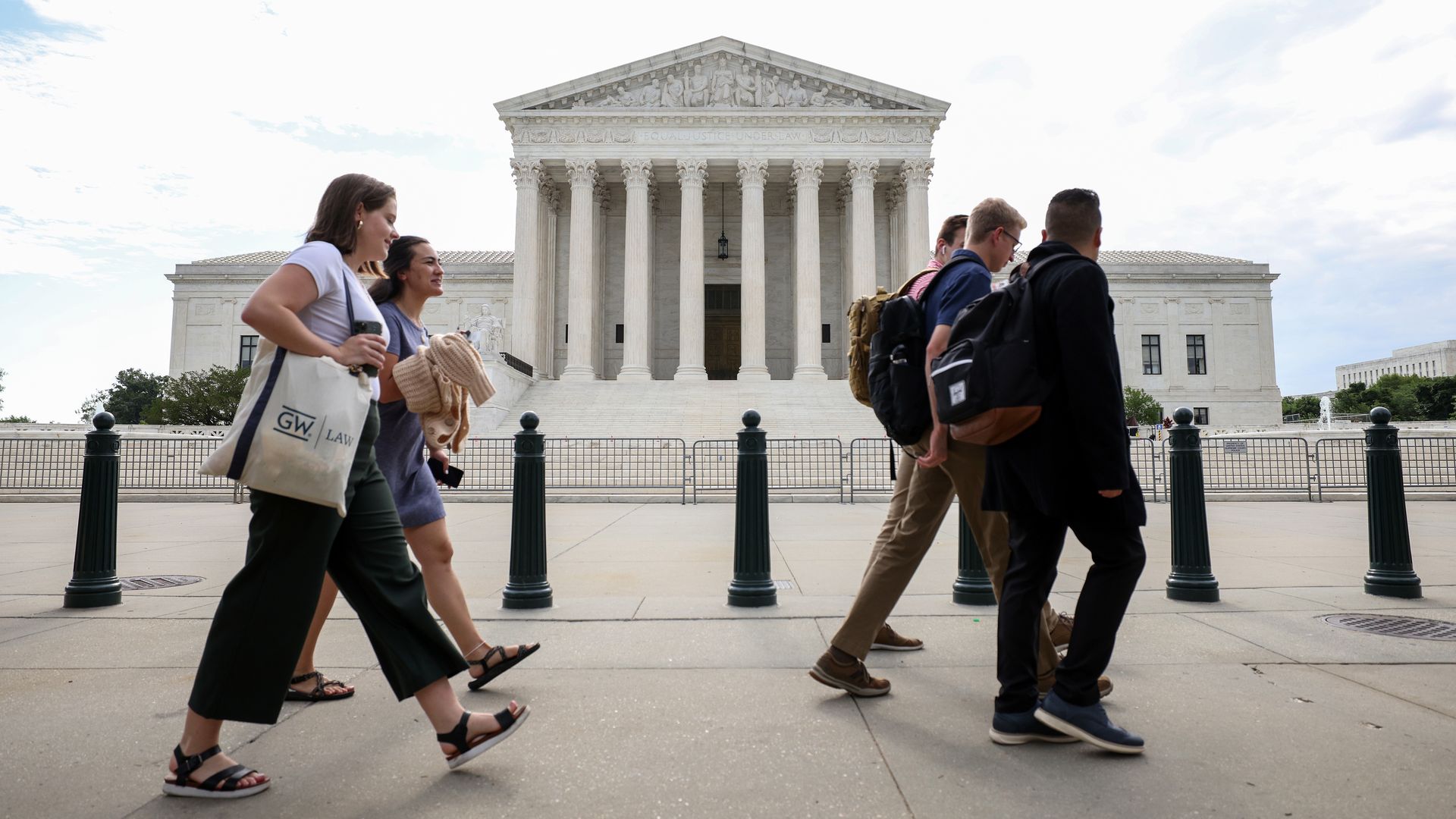Jun 15, 2021 - Politics & Policy
Supreme Court orders new review of data scraping in LinkedIn case
Add Axios as your preferred source to
see more of our stories on Google.

People walking outside of the Supreme Court in Washington, D.C., on June 10. Photo: Kevin Dietsch/Getty Images
